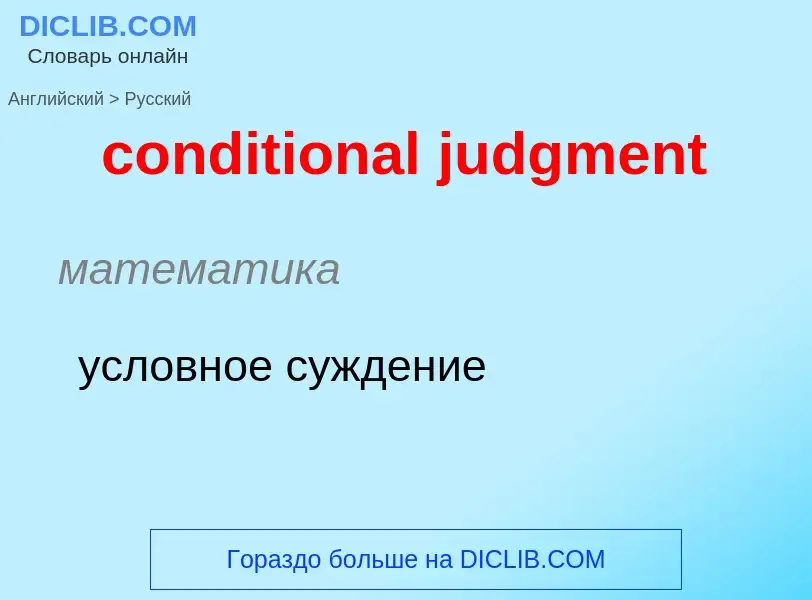Tradução e análise de palavras por inteligência artificial ChatGPT
Nesta página você pode obter uma análise detalhada de uma palavra ou frase, produzida usando a melhor tecnologia de inteligência artificial até o momento:
- como a palavra é usada
- frequência de uso
- é usado com mais frequência na fala oral ou escrita
- opções de tradução de palavras
- exemplos de uso (várias frases com tradução)
- etimologia
conditional judgment - tradução para russo
математика
условное суждение
общая лексика
условное наклонение
Definição
Wikipédia
The conditional mood (abbreviated cond) is a grammatical mood used in conditional sentences to express a proposition whose validity is dependent on some condition, possibly counterfactual.
It may refer to a distinct verb form that expresses the conditional set of circumstances proper in the dependent clause or protasis (e.g. in Turkish or Azerbaijani), or which expresses the hypothetical state of affairs or uncertain event contingent to it in the independent clause or apodosis, or both (e.g. in Hungarian or Finnish). Some languages distinguish more than one conditional mood; the East African language Hadza, for example, has a potential conditional expressing possibility, and a veridical conditional expressing certainty. Other languages do not have a conditional mood at all. In some informal contexts, such as language teaching, it may be called the "conditional tense".
Some languages have verb forms called "conditional" although their use is not exclusive to conditional expression. Examples are the English and French conditionals (an analytic construction in English, but inflected verb forms in French), which are morphologically futures-in-the-past, and of which each has thus been referred to as a "so-called conditional" (French: soi-disant conditionnel) in modern and contemporary linguistics (e.g. French je chanterais, from Late Latin cantāre habēbam, in si vous me le permettiez, je chanterais, "if you allowed me to do so, I would sing" [so-called conditional] vs. j'ai dit que je chanterais, "I said that I would sing" [future-in-the-past]). The English would construction may also be used for past habitual action ("When I was young I would happily walk three miles to school every day").
This article describes the formation of the conditional forms of verbs in certain languages. For fuller details of the construction of conditional sentences, see Conditional sentence (and for English specifically, English conditional sentences).

